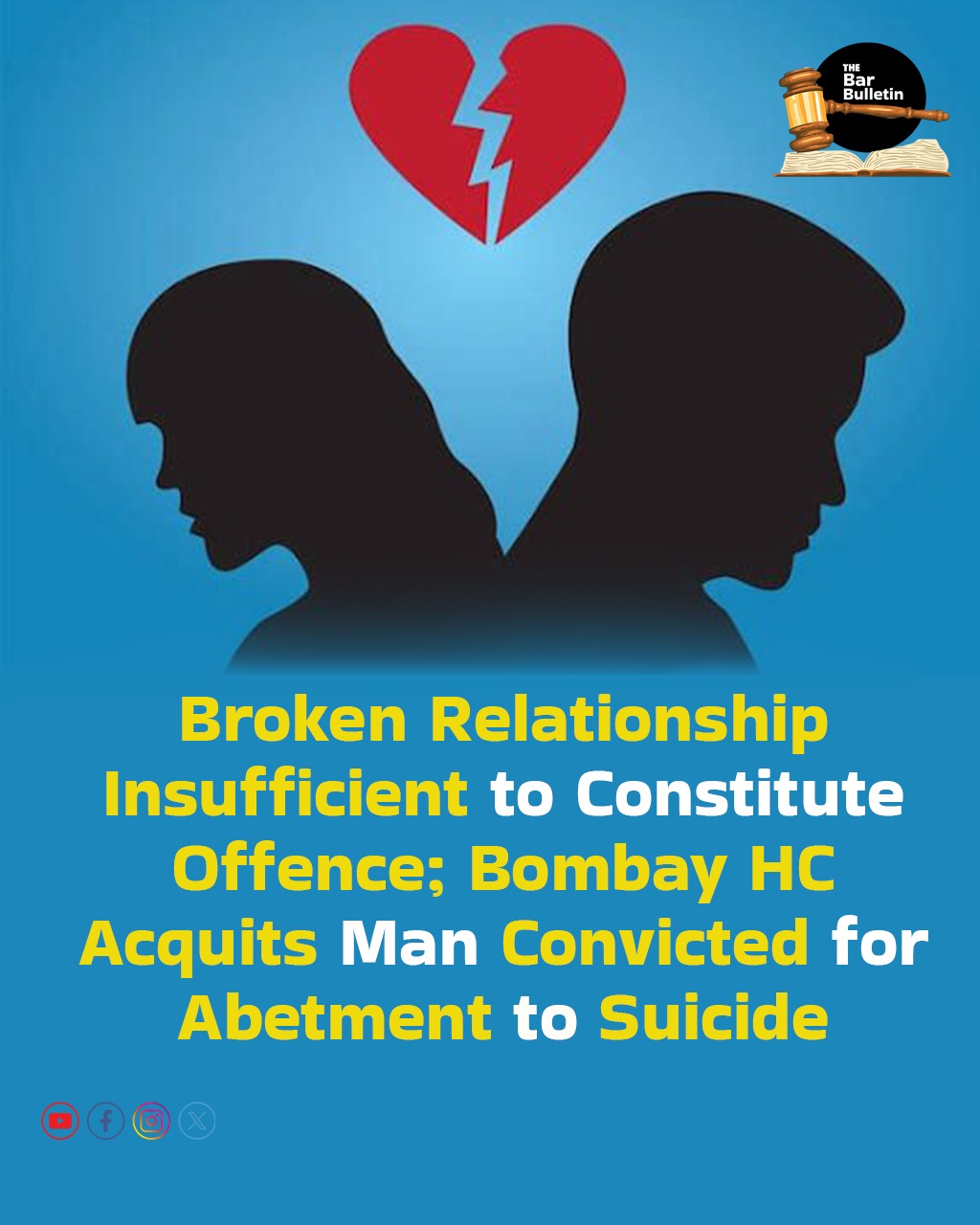The Nagpur Bench of the Bombay High Court has acquitted a person convicted under Section 306 of the Indian Penal Code[1], holding that a broken relationship by itself is not sufficient to constitute abetment of suicide. The appeal arose from a conviction order of the Additional Sessions Judge, Gondia, wherein the accused was sentenced to three years’ rigorous imprisonment and fine.
The prosecution case was that the deceased Maya, daughter of complainant was in a relationship with the accused for about five years. On learning that he was marrying another woman, she went to his house seeking marriage but was turned away by his family. She lodged a police complaint and also approached the Tanta Mukti Samiti of the village, which recorded a settlement restraining both parties from contacting each other. It was alleged that despite this, the accused continued to restrain and threaten her, following which she committed suicide by hanging on in February 2009. A suicide note was seized during the investigation.
In 2016, the trial court had found the accused guilty of abetting the suicide of the deceased and imposed sentence. Aggrieved by the conviction, the accused preferred the present appeal before the High Court.
Appellant contended that the essential ingredients of Section 306 IPC[2] were not made out, that the alleged suicide note was not proved by examination of the handwriting expert, and that there was no evidence of instigation or intentional aid by the accused. The prosecution argued that the refusal to marry, the alleged harassment, and the suicide note established abetment.
Justice Urmila Joshi Phalke, after reviewing the evidence, found material omissions and contradictions in the testimonies of the complainant and other witnesses. The suicide note merely stated that the deceased was harassed, but it did not disclose any act of instigation or compulsion. The handwriting expert was not examined, leaving the note unproved. Testimony of a neighbour also revealed that the deceased’s father opposed the relationship and had beaten her, which could have contributed to her distress. The Court observed that the evidence indicated a case of a broken relationship and family opposition, rather than abetment by the accused.
The Court observed that conviction requires proof of clear mens rea and a positive act of instigation or aid. Holding that the prosecution had failed to prove the essential ingredients of abetment, the Court allowed the appeal, set aside the conviction and sentence, acquitted the accused, and discharged his bail bonds.
Cases Relied On
Ramesh Kumar v. State of Chhattisgarh, AIR 2001 SC 383 Sanju v. State of M.P., (2002) 5 SCC 371 M. Mohan v. State, AIR 2011 SC 1238
S.S. Chheena v. Vijay Kumar Mahajan, 2010 AIR SCW 4938
Appearances
Appellant- Shri Aditya Pande, Counsel and Shri Amol Jaltare, Advocate
Prosecution- Shri N.B.Jawade, Additional Public Prosecutor
[1] Replaced with Section 108 of Bhartiya Nyaya Sanhota, 2023
[2] Supra

